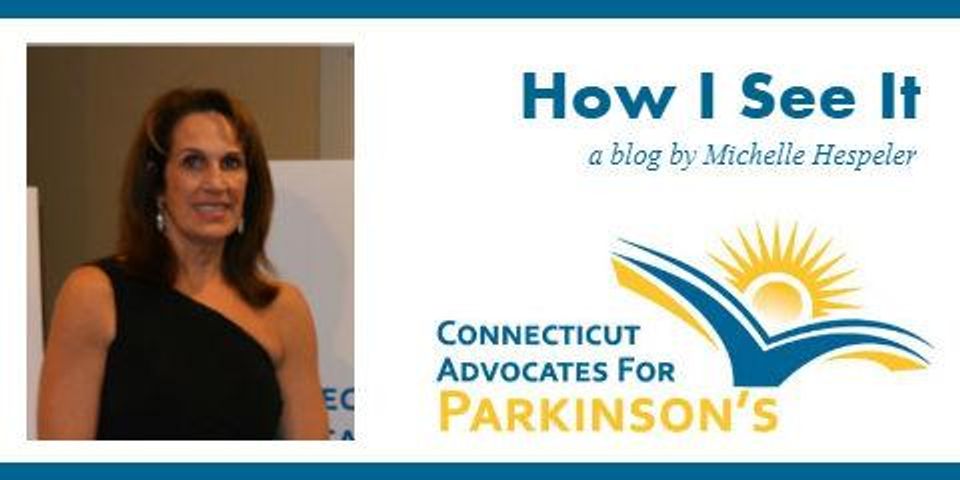Everyone Has a Story | A Blog by Michelle Hespeler

When one gets diagnosed with any disease, it is life changing. The manner in which we react can change your world and everyone around you.
Here are some stories that I would like to share:
“Grocery shopping (food), has been difficult for me. I would have to find somewhere to sit in the store, 4 or 5 times each trip. I have been in the Beat PD exercise class for about 5 weeks, 2 times a week. Now I go to the grocery store and only need to sit once for less than 1 minute. It is great. I expect it will continue to get better. I look forward to all the little improvements”.
--Alice H
“When I started with the Beat PD exercise program, I couldn't do much of anything, I had no energy or desire to exercise. Every exercise was a challenge and I felt like a failure, I couldn't even jump rope, such a simple exercise that so many of us did as kids. Now almost 4 years into the program, I can see the improvements, in my balance, flexibility and endurance. Not only did I beat that jump rope but ran my first 5k race. I felt like I accomplished something when I crossed that finish line for the first time; I don't feel like that failure anymore. Having a good attitude and making friends with other people with PD has helped tremendously”.
-- Brenda V.
“Seven years ago at age 74, receiving the diagnosis of Parkinson Disease sent me into a tailspin. I felt helpless, depressed and became weepy and emotional when talking about this new health challenge until I found out about the importance of exercise. When I became aware of the Beat PD classes I immediately got involved and must say that exercise has given me a new lease on life. I no longer feel helpless or depressed since attending Beat PD classes, for I realize that I can help myself by working out regularly - Exercise is indeed, medicine for me. Additionally, the support, friendship and camaraderie gained from the excellent Trainers and other attendees is immeasurable!”
-- Ida Mae K
“I began experiencing PD symptoms early in 2015. My handwriting began shrinking and writing became more difficult. I also developed a very slight tremor in my right hand. My primary care physician didn’t express any concern, and my wife had just been diagnosed with cancer, so I put my own health issues aside.
Once my wife completed her cancer treatments I took the time to address some vision problems (that seemed more important) and we both retired from our jobs. We spent 2016 enjoying our free time and made great memories traveling.
However, my writing got worse, my tremor got worse, I became less flexible, and began having numbness in my right arm and hand. In spite of this we kept traveling during the first half of 2017.
In late June of 2017 I experienced dizziness and sought medical advice. I informed my new PCP of my concerns, and he performed an EKG and suggested that I was probably fine – as I appeared to be otherwise healthy. My head “didn’t feel right” and I was worried about the numbness in my arm, so I insisted on visiting a neurologist. I received a very thorough exam from a neurologist, who thought that I might have essential tremor. In the interest of caution he sent me for an EEG.
The EEG produced some abnormal results, so I was sent for an MRI. MRI results were normal. There was still no conclusion as to what was causing my problems. I lost confidence in my physical abilities, and became less active. When the weather turned colder my tremor became almost constant and more pronounced. My arm didn’t swing when I walked.
When I returned to the neurologist he had no doubt that I had Parkinson’s Disease. He didn’t seem to know how to talk to me about the disease or describe how it would impact my life. At that point he referred me to a PD specialist. My PD specialist (neurologist) confirmed that I had the disease.
He took the time to explain how it would impact me and how it would most likely progress. He described some drug choices, their likely effectiveness, and both short and long-term side effects. He also stated that the only thing that would slow the progression of the disease was serious exercise. He then took the time to answer every one of my questions.
I began occupational therapy, where I learned “Big and Loud” exercises and worked on my fine motor skills. I also began walking every day. I kept a log of all my activities, maintaining accountability to myself until these activities became habit. My body was still very stiff, but became much stronger.
During the winter of 2018 I began taking a very low dose of carbidopa/levodopa. It did nothing to reduce my tremors, but seemed to reduce some of my stiffness. At a follow-up visit with my neurologist he suggested that I increase my level of activity and look into boxing. I started searching for a program that would suit me, and found a listing for a new class for PD people at the Farmington Senior Center. I attended an introductory class and decided it would be worth trying. This turned out to be one of the best decisions I’ve ever made!
The class is only one hour per week, but the instructors work us as hard as our abilities will allow. We do stretching, interval training and boxing. (The boxing only involves hitting and kicking – not receiving any punches.) I embraced the philosophy that the class was only a start, and that if I was to see serious progress I had to be committed to daily exercise.
I continued to walk every morning, did my exercise routine every evening, and looked for additional activities. My gross motor skills have improved along with my fine motor skills. I’ve put a strong emphasis on increasing my leg strength, in an effort to improve balance. It’s working. I can throw a baseball, kick a soccer ball, and run. Five months ago I could only dream of doing these things. Other changes have been necessary. My hand tends to shake when I am cold, tired or stressed. I try to keep my arm warm, get 8 to 9 hours of sleep each night, and stay away from people who make me nervous.
When I make decisions, I think about what is really best for me. I still consider the needs of others, but give my own needs a little more weight than I might have in the past.
One frustration I’ve had with all of my physical activity is that it has been necessary to chart my own path. It would have been very helpful to have resources available to guide me to places where I could receive coaching on an exercise program – with specific exercises and recommended frequency for workouts.
I am using a blend of exercises that I’ve picked up from a few different sources. I fear that very few people would be sufficiently motivated (or able) to do this for themselves. I’ll keep working at this. My quality of life is so much better than it was a year ago, that I have no doubt that I should keep trying. One can be a victim or a fighter. I choose to fight.”
-- Zane R
About the Business
Have a question? Ask the experts!
Send your question

